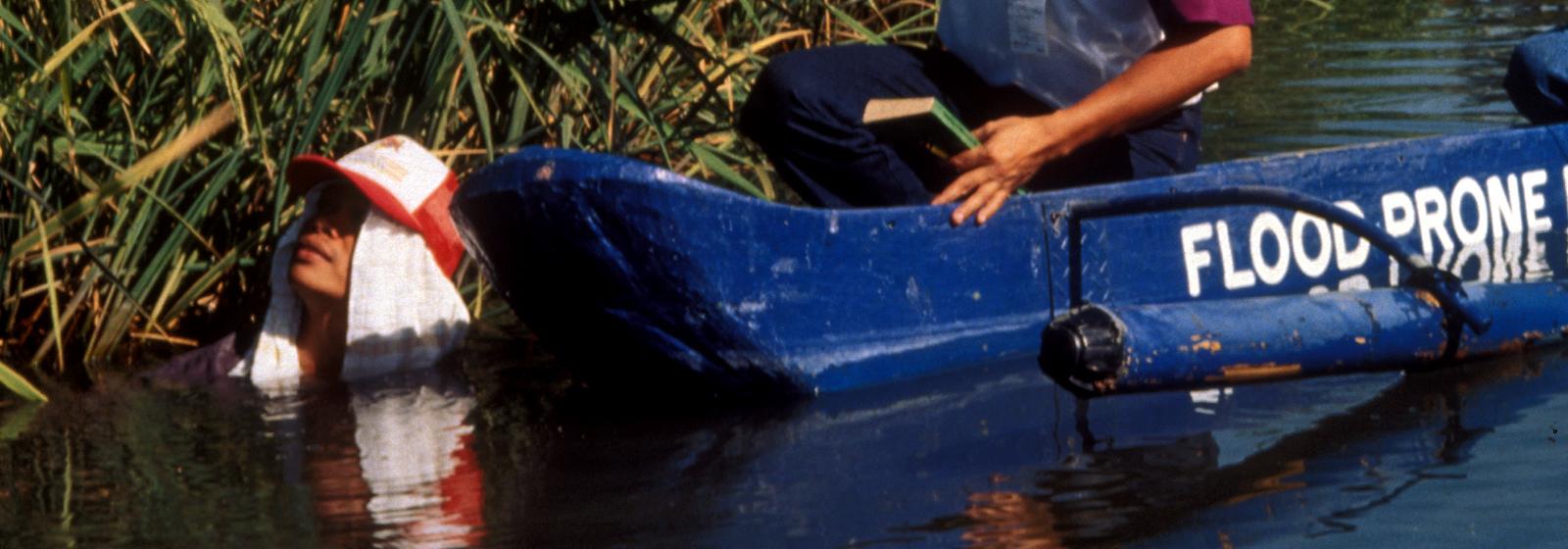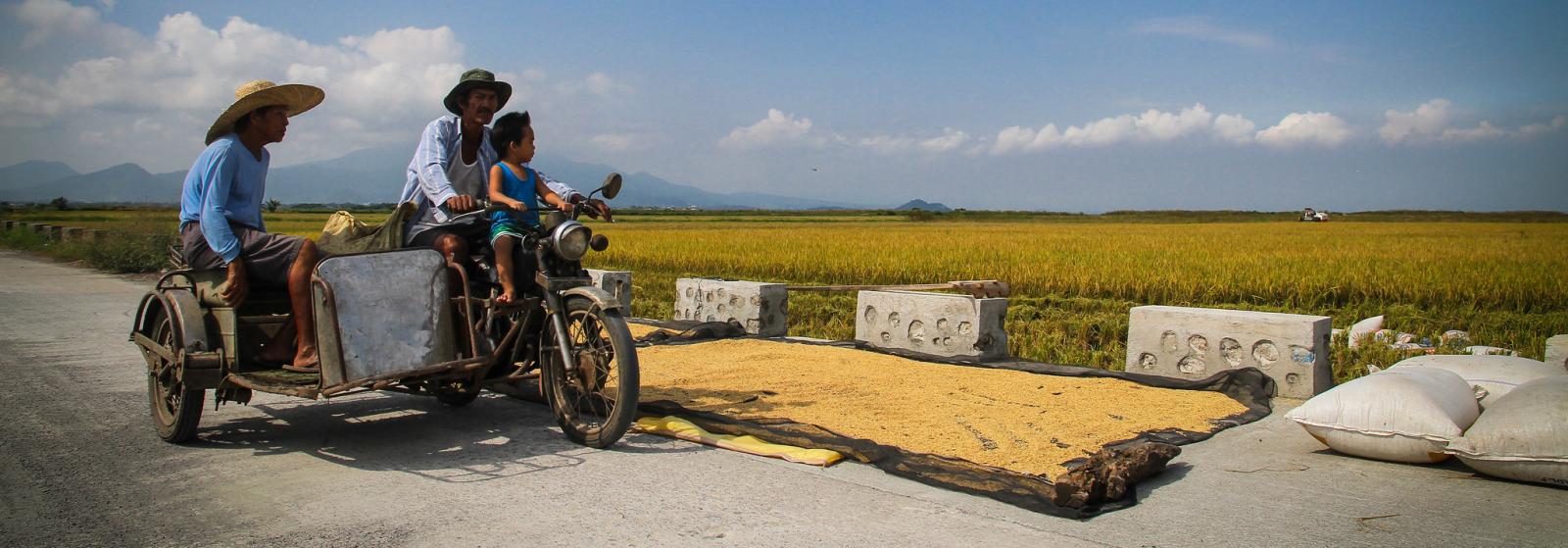Rice production is both a victim and a contributor to climate change.
Drought, flood, saltwater, and extreme temperatures devastate crops and risk the livelihoods of 144 million smallholder rice farmers each growing season.
At the same time, traditional cultivation methods, such as flooding paddy fields and burning rice straw in open fields, contribute approximately 10% of global man-made methane, a potent greenhouse gas.
At IRRI we develop and adapt climate-responsive solutions, working with extension agents, national research institutions, and governments across South Asia, Southeast Asia, and Africa, to promote sustainable rice-based food systems.

First, we help rice farmers adjust to climate change. By leveraging the genetic diversity of the Rice Genebank, the world’s largest repository of rice varieties, we breed rice varieties that can survive unforeseen climate shocks and thrive in marginal environments. We also boost the mitigation of future climate crises by developing new cultivation practices and technologies that minimize greenhouse gas emissions, enhance input-use efficiency, and predict and respond to future climate threats. Finally, we work with governments to provide an evidence base so they can make informed decisions and set policies to meet their development agenda and their SDG contributions.

Related Projects
Climate Change and Rice
Related News
- Addressing the effects of climate change on rice productivity: ADB, IRRI convene three-country policy workshops on scaling-up climate-smart practices for sustainable and intensive rice-based farming
- Ricepedia - Climate Change
- Climate change-ready rice
- Climate change research facility opens at IRRI
- Conference highlights need for increased climate funding for rice agri-food systems
- Modeling the Impact of Climate Change on Rice Production in Asia
Climate-Smart Rice
Sustainable Rice Straw Management
Related News
- Creating value from waste: scalable and sustainable opportunities in Rice Straw Management
- Technologies for Rice Straw Management
- In-field rice straw management
- Stakeholders learn about sustainable rice straw management in Vietnam
- Rice straw management options
- RiceStrawPH: IRRI teams up with Philippine partners for sustainable rice straw management project
Direct Seeded Rice Consortium
Related News
- DSRC on Facebook
- Direct Seeded Rice
- Direct Seeding
- Direct Seeded Rice Consortium convenes first annual meeting to advance partnerships for more sustainable, environment-friendly rice systems
- JFE Steel Joins Direct Seeded Rice Consortium, tests for performance of Iron-Coating Technology of rice in Asia
- IRRI, BASF eye wider adoption of direct seeding in Asia
- Bayer partners with IRRI to advance technologies for direct-seeded rice in Asia
- IRRI and BASF team up to promote direct-seeded rice in Asia
- IRRI eyes public-private sector support for wider DSR adoption







